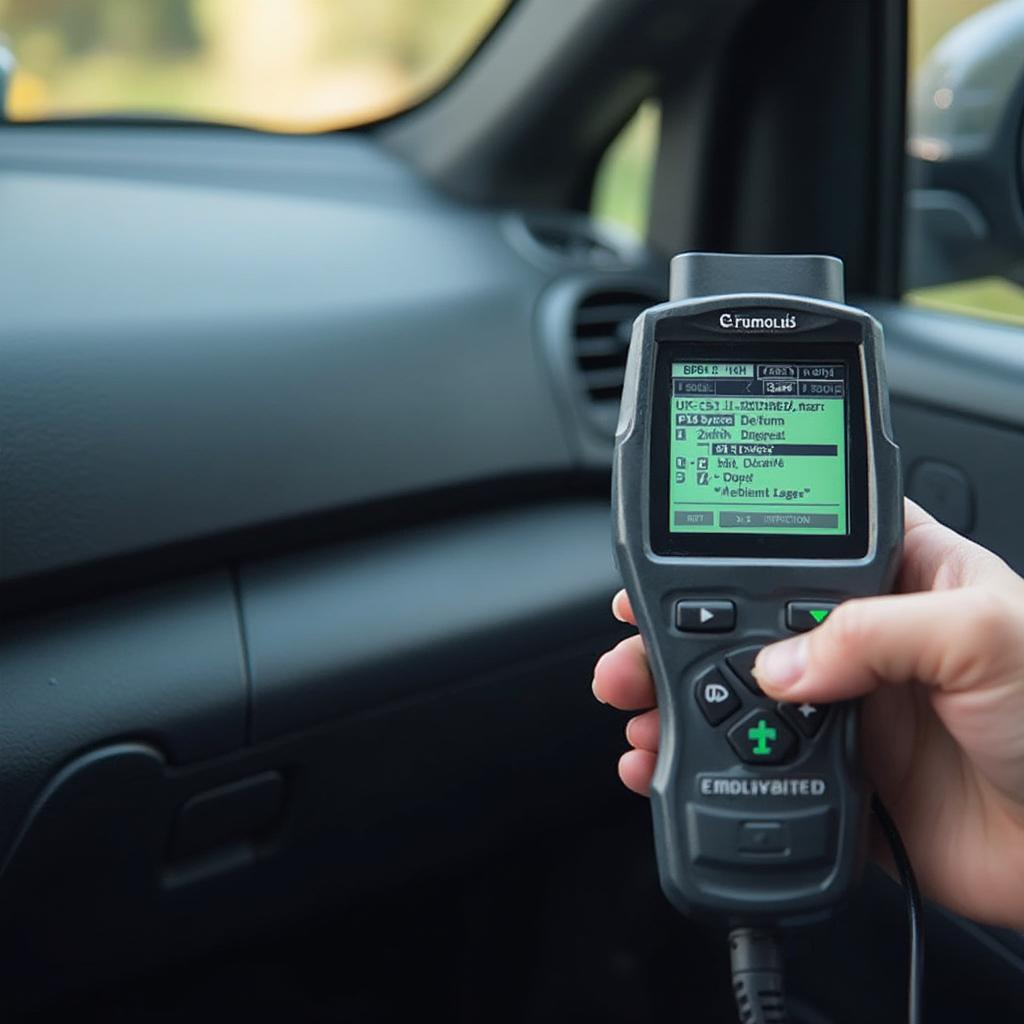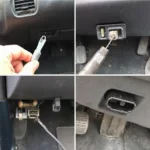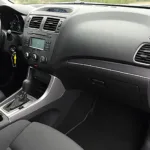Failing your North Carolina vehicle inspection due to OBD2 issues can be frustrating. This article provides a comprehensive guide to understanding why your car might fail, what the codes mean, and how to address the problems. We’ll explore common causes, diagnostic techniques, and solutions to help you pass your next inspection with flying colors.
Understanding the NC inspection process and the role of OBD2 diagnostics is crucial. The OBD2 system, standard in most vehicles since 1996, monitors various systems in your car, including emissions. During the inspection, a technician connects a scanner to your car’s OBD2 port to check for stored trouble codes. These codes pinpoint potential problems that could affect your car’s emissions and overall performance. If you see codes related to emissions, like an obd2 430 code, you’ll likely fail the inspection.
Common Reasons for NC Inspection Fail OBD2
Several factors can trigger an OBD2-related inspection failure. One of the most common is a loose or damaged gas cap. A faulty gas cap can lead to evaporative emissions leaks, triggering specific OBD2 codes. Another frequent culprit is a malfunctioning oxygen sensor. These sensors monitor the oxygen levels in your exhaust, ensuring proper combustion. A faulty sensor can disrupt this process, leading to increased emissions and a failed inspection. Catalytic converter issues, often indicated by specific codes, are also a major cause for concern. The converter plays a crucial role in reducing harmful pollutants in your exhaust.
Identifying the Specific OBD2 Codes
Understanding the specific OBD2 codes triggering the failure is crucial for effective troubleshooting. Each code corresponds to a specific problem. For instance, a P0420 code often signifies a catalytic converter problem. Similarly, P0171 and P0174 codes indicate lean and rich fuel mixtures, respectively. Having a reliable OBD2 scanner, especially one that can provide details beyond generic codes, like the best obd2 scanner with abs and srs, is invaluable in this process.
Troubleshooting and Fixing OBD2 Issues
Once you’ve identified the specific codes, you can begin troubleshooting. Start with the simplest solutions first. For example, if you have a code related to the gas cap, try tightening or replacing it. If the issue persists, move on to more complex diagnostics. Check for vacuum leaks, inspect the oxygen sensors, and examine the catalytic converter.
Using an OBD2 Scanner for Diagnosis
A good OBD2 scanner can be an invaluable tool for DIYers. It not only displays the codes but can also provide live data, allowing you to monitor sensor readings in real-time. This can be incredibly helpful in pinpointing intermittent problems that might not trigger a stored code.
What if I’m still failing after repairs?
Sometimes, even after addressing the apparent issues, the car might still fail the inspection. In such cases, it’s best to consult a qualified mechanic. They have the expertise and specialized equipment to diagnose and fix complex OBD2 problems, even those tricky issues that can plague certain models, like jeep renegade obd2 codes.
“A thorough diagnostic approach is essential when dealing with OBD2 issues,” says John Smith, ASE Certified Master Technician. “Don’t just replace parts based on codes. Understand the underlying causes to ensure a lasting fix.”
Preventing Future NC Inspection Fail OBD2 Issues
Regular maintenance is key to preventing future OBD2-related inspection failures. Ensure your car receives timely oil changes, tune-ups, and other scheduled services. This helps keep your engine running efficiently and minimizes the risk of triggering OBD2 codes. Also, consider using a quality fuel system cleaner periodically to help prevent carbon buildup and maintain optimal fuel system performance.
“Preventive maintenance is the best way to avoid OBD2 headaches,” adds Jane Doe, Automotive Engineer. “A well-maintained car is less likely to experience emissions problems and fail inspections.” Investing in a reliable and compatible OBD2 scanner, like the obd2 mini vic cable, can help monitor your car’s health and catch potential issues early.
Conclusion
Failing an NC inspection due to OBD2 issues can be a setback, but it’s not the end of the road. By understanding the codes, utilizing diagnostic tools like OBD2 scanners, and addressing the underlying problems, you can get your car back on track and pass your next inspection. Remember, regular maintenance is your best ally in preventing future OBD2-related issues.
FAQ
-
What does OBD2 stand for? OBD2 stands for On-Board Diagnostics, generation two.
-
How often should I have my car inspected in NC? Annually.
-
Can I check my OBD2 codes myself? Yes, with an OBD2 scanner.
-
What is the most common reason for an OBD2-related inspection failure? A loose or damaged gas cap.
-
Do all cars have OBD2 ports? Most cars made since 1996 do.
If you need further assistance, please contact us via WhatsApp: +1(641)206-8880, Email: [email protected]. We have a 24/7 customer support team ready to help. If you’re experiencing Bluetooth connection issues with your scanner, check out our troubleshooting guide for smart connect obd2 not connecting to blue tooth. We also have resources on specific OBD2 codes and car models.


